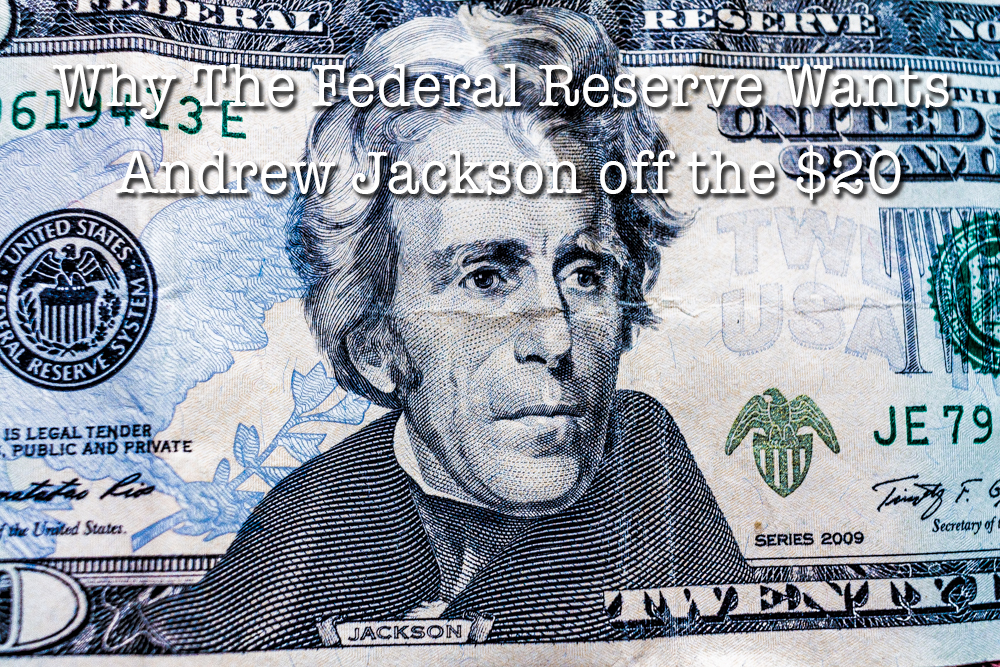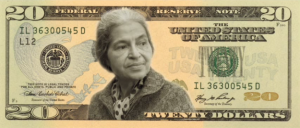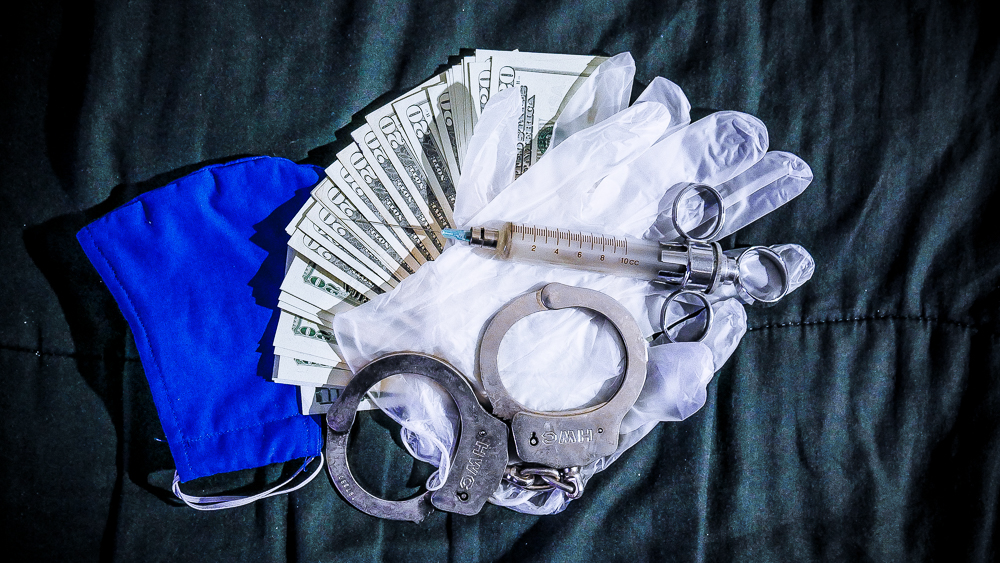
 There is a concerted effort in place to replace the image of Andrew Jackson on the 20 dollar bill. Of course, this is being done under the guise of political correctness. The theme seems to be “We need a female leader on some of our currency, so why not on the $20?” The way the mainstream media is portraying it, Andrew Jackson has nothing to do with it. His bill is arbitrary. But I believe there is deeper meaning to it.
There is a concerted effort in place to replace the image of Andrew Jackson on the 20 dollar bill. Of course, this is being done under the guise of political correctness. The theme seems to be “We need a female leader on some of our currency, so why not on the $20?” The way the mainstream media is portraying it, Andrew Jackson has nothing to do with it. His bill is arbitrary. But I believe there is deeper meaning to it.
Although I have no problem with a female leader on a bill (Sacagawea already adorns the $1 coin, Susan B Anthony has been on coins in the past, and even Martha Washington adorned a limited silver certificate.), I believe the Federal Reserve is targeting Andrew Jackson. If you are going to replace someone on a bill, why not Grant on the $50? What did he ever do? Or, realistically, why not Ben Franklin on the $100? Ben Franklin is the only person on a US bill that was never a president. Why Jackson? I’ll tell you why.
Before the formation of the Federal Reserve Bank (a privately owned bank) in 1913, the United States had 2 previous privately owned “central banks”. The First Bank of the United States was established in 1791 and died when its charter expired 20 years later. In 1816, James Madison signed the Second Bank of the United States into existence. When Andrew Jackson was elected president in 1828, he was concerned about the Bank’s constitutionality and the general soundness of paper money in place of gold and silver. Jackson and his supporters felt the central bank conferred economic privileges on financial elites, violating U.S. constitutional principles of social equality. Jackson considered the Second Bank of the United States to be an illegitimate corporation whose charter violated state sovereignty.
Andrew Jackson’s opposition to the Bank became a driving force for him. Along with strong attacks against the Bank in the press, Jackson vetoed the Bank Recharter Bill in 1832. Jackson also ordered the federal government’s deposits removed from the Bank of the United States and placed in state Banks. The people were with Jackson, and he was overwhelmingly elected to a second term in 1832. The Second Bank of the United States was officially dead when its charter expired in 1836.
Andrew Jackson hated the concept of a privately owned National Bank, and warned against the creation of another one. Yet in spite of his warnings, the Federal Reserve Bank was created in 1913. The privately owned Federal Reserve Banks prints our paper currency, and would love to remove it’s historical opponent Andrew Jackson from the $20. But they can’t just admit that. Instead they feed us the PC notion of replacing him with a female leader.
It seems sneaky to me that the push to remove Andrew Jackson from the 20 dollar bill is being pushed as a feminist issue. The website womenon20s.org claims the reason for the 20 is “The year 2020 marks the 100th anniversary of the passage of the 19th Amendment that granted women the right to vote.” But wouldn’t the 100th anniversary be better represented on the 100 dollar bill? After all, Ben Franklin is currently on the $100, and he was never a president.
This looks to me like a concerted effort to remove any historical opposition to the Federal Reserve system from our Federal Reserve printed fiat currency hidden under the guise of political correctness. It is disgraceful.
“If congress has the right under the Constitution to issue paper money, it was given them to use themselves, not to be delegated to individuals or corporations.” -Andrew Jackson
“The bold effort the present (central) bank had made to control the government … are but premonitions of the fate that await the American people should they be deluded into a perpetuation of this institution or the establishment of another like it.” – Andrew Jackson
“Gentlemen, I have had men watching you for a long time and I am convinced that you have used the funds of the bank to speculate in the breadstuffs of the country. When you won, you divided the profits amongst you, and when you lost, you charged it to the bank. You tell me that if I take the deposits from the bank and annul its charter, I shall ruin ten thousand families. That may be true, gentlemen, but that is your sin! Should I let you go on, you will ruin fifty thousand families, and that would be my sin! You are a den of vipers and thieves.” – Andrew Jackson








At times like this it boils down to finding the information required, which as I’m sure you know can take some time. This post helped me figure out what I needed.
A formidable share, I simply given this onto a colleague who was doing just a little analysis on this. And he in actual fact bought me breakfast as a result of I found it for him.. smile. So let me reword that: Thnx for the treat! But yeah Thnkx for spending the time to discuss this, I feel strongly about it and love reading extra on this topic. If doable, as you turn into experience, would you thoughts updating your weblog with more particulars? It’s highly helpful for me. Huge thumb up for this weblog publish!
very good post, i actually love this website, keep on it
I? must verify with you here. Which is not one thing I normally do! I get pleasure from studying a put up that can make individuals think. Additionally, thanks for permitting me to comment!
Correction, Franklin is not the only face on a bill that never served as president. The insipid mug shot of Alexander Hamilton plagues the $10 bill. But I digress. While I agree wholeheartedly with the Jacksonian-era disdain for central bankers (“a den of vipers and thieves”) and fiat currency, I’m not sure I agree with your assertion. The Federal Reserve historically changed faces on bills frequently as an anti-counterfeiting measure. Several faces were on the bill before Jackson, including Grover Cleveland. At some point the Federal Reserve had to make the choice to put Jackson on the bill to begin with. There is no record of the reasoning behind this move. I have long speculated that they placed Jackson on the bill deliberately, in full knowledge of his hate of central banking, for no other reason than to spite his legacy. If they are so eager to remove him from the bill because of these views, as you argue in this piece, one would have to wonder why, in that mindset, they would have ever added him to the bill in the first place?
good point. And Hamilton was secretary of the Treasury, so that can get him on the money. I figure it wasn’t until the more recent disdain for the central bank (due to the recent economic troubles, and the loud voices of folks like Ron Paul and Alex Jones), that it became necessary to bury any thing that may legitimize the gripe against the central bank. When Jackson was first put on the bill in 1928, it was the 100 year anniversary of his election, and the 15th year of the new Federal Reserve. I feel like they may have felt safe to mock him. Where as now Jackson has become a symbol for the “Anti Federal Reserve” people, they feel it is best to take him out of the public eye.